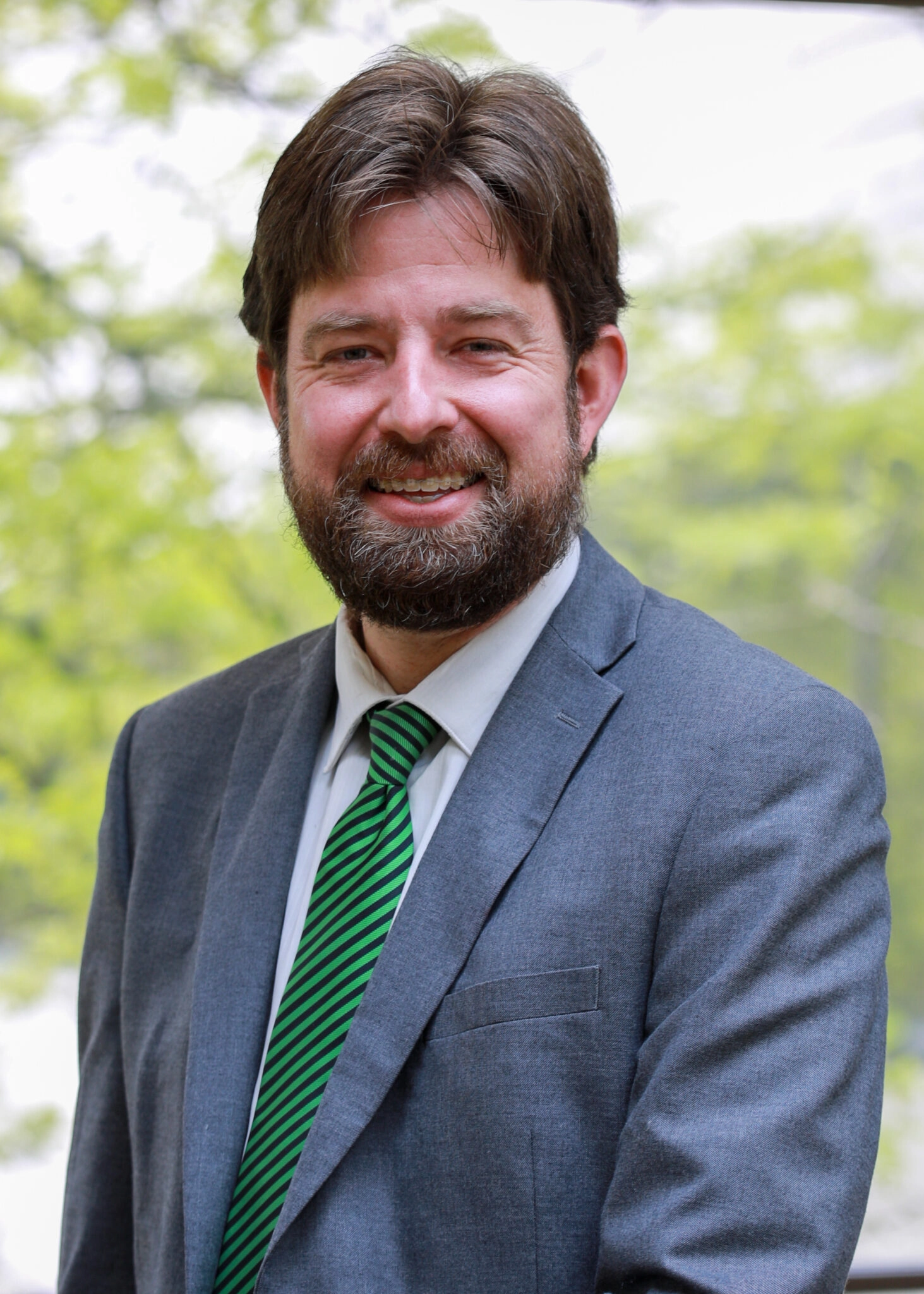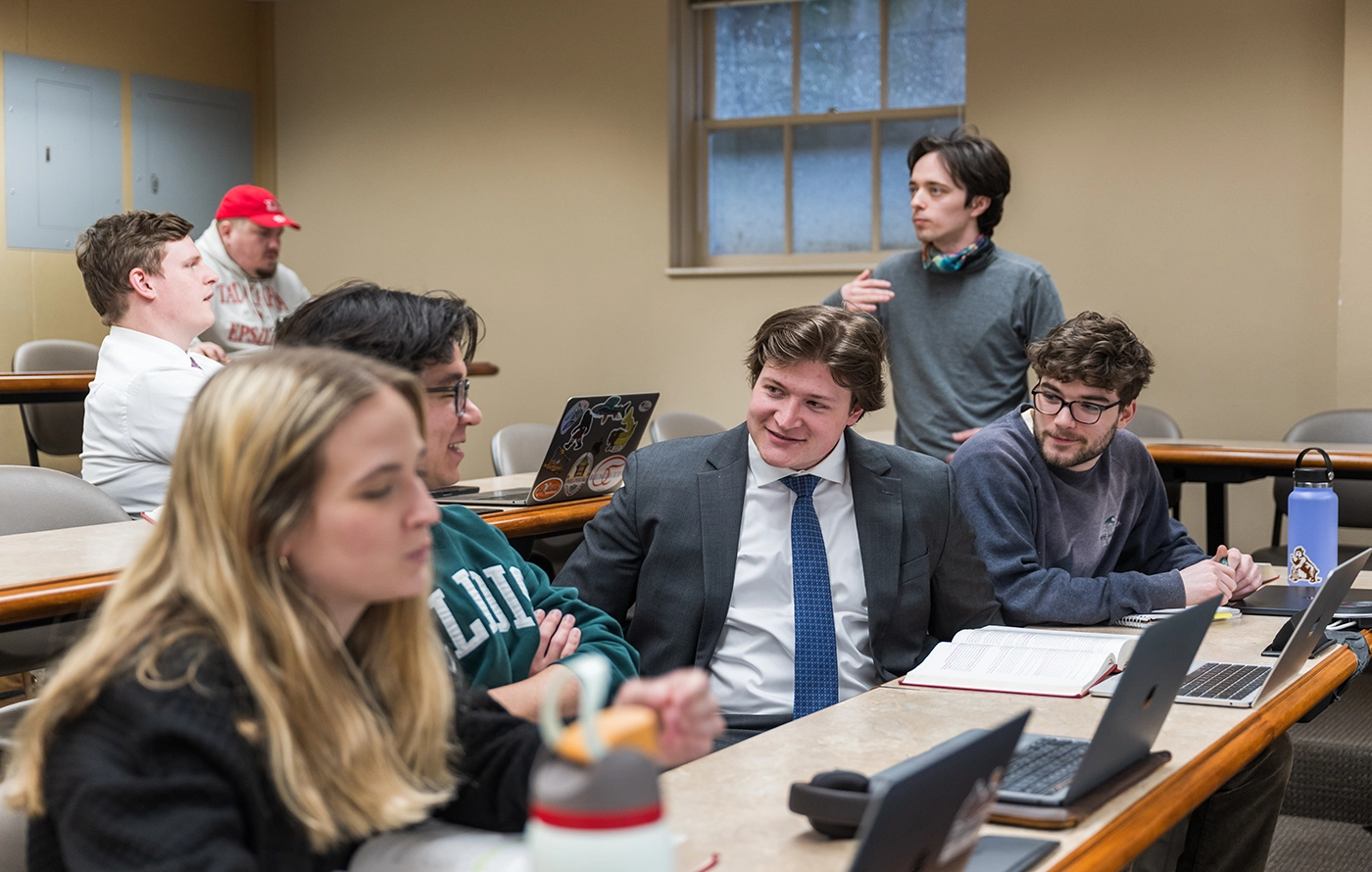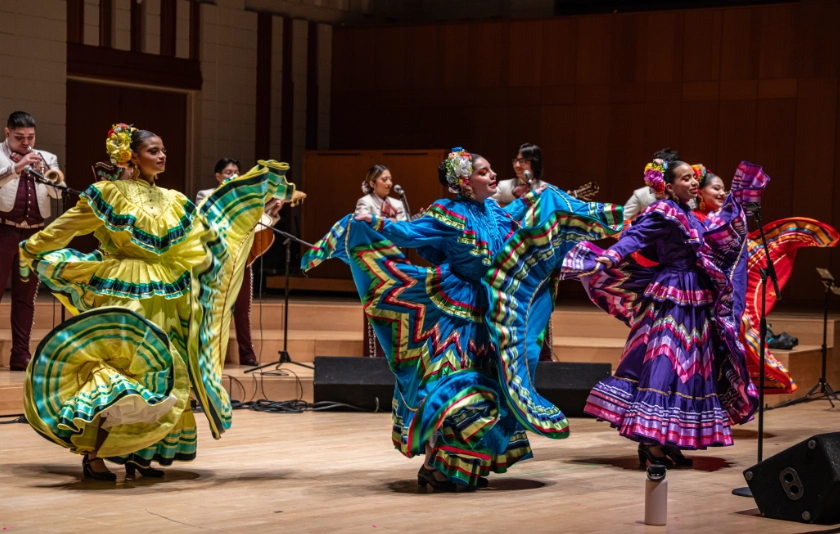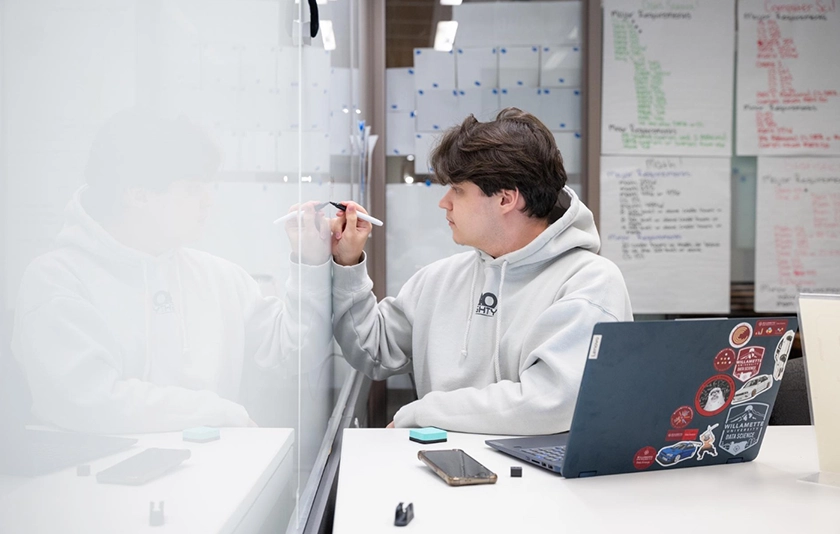 In a justice system where most cases never see the inside of a courtroom, professor Brook Reinhard JD’09 is preparing Willamette Law students for the reality that will define their careers: the art of the deal. With more than 95% of cases now resolved through plea bargaining rather than trial, Reinhard has returned to his alma mater to help students understand the foundational role plea bargaining plays in our modern criminal defense system.
In a justice system where most cases never see the inside of a courtroom, professor Brook Reinhard JD’09 is preparing Willamette Law students for the reality that will define their careers: the art of the deal. With more than 95% of cases now resolved through plea bargaining rather than trial, Reinhard has returned to his alma mater to help students understand the foundational role plea bargaining plays in our modern criminal defense system.
“Plea bargaining has become integral to our criminal justice system” says Reinhard, a trial attorney who runs the solo defense firm Reinhard Law. “The rise of plea deals over the last 30 or so years has reshaped the justice system.”
Reinhard developed the plea bargaining courses aimed at training competent lawyers who both understand the theory of criminal law, but also have the skills needed to effectively negotiate plea bargains. The course offers students an immersive experience with hands-on, practical skills and is structured around in-depth modules, each offering a combination of legal doctrine, interactive discussion, and skill-building exercises. Students unpack case law, including pivotal Supreme Court decisions, and then dive into negotiation tactics. The balance helps students to think strategically and advocate effectively.
Every step of the way, Reinhard reminds students that when they go on to be attorneys, they will be representing real people. “The currency in these negotiations is often jail time,” he says. “That’s an incredible responsibility. We talk about the ethical dimensions of plea bargaining and the importance of understanding your client — not just what they want, but why.”.
Guest speakers — including federal judges, prosecutors, defense attorneys, and individuals with lived experience — bring the system to life, leaving a profound impact on the students.
Patrick Bujold JD’25 says the class was transformative in his understanding of criminal law. “This course really drove home just how much power the prosecutor has over the process” he explains. “This class helped me see that — and taught me how to respond.”
Bujold also emphasized how widely applicable the skills are, even for those who do not intend to pursue criminal law. “I can't think of an area of the law one could practice in that doesn't require some ability to negotiate,” he says. “While the course is focused on plea bargaining, the skills you will learn extend far beyond the criminal context.”
That is exactly Reinhard’s intention for the course. “There’s no one personality type that makes a great lawyer,” Reinhard explains. “Some of the most effective students are quiet, thoughtful, and strategic. The goal is to help each student find what works for them — what their style is — and how to grow.”
In fact, Reinhard took his inspiration for the course from his favorite course as a Willamette Law student: Oregon Criminal Procedure with Chief Justice Paul De Muniz JD’75. De Muniz provided detailed readings about Oregon-specific cases while students participated in mock trials and negotiations — switching back and forth between playing prosecutor or defense attorney. The model worked for Reinhard and taught him to think like a lawyer even as a law student.
His time at Willamette Law had such a profound impact that Reinhard jumped at the chance to give back by teaching this course. He explains, “now, I get to give back by helping students think like advocates — and feel confident doing it.”
Looking ahead, the course may shift from an intensive intersession model to a semester-long format, allowing for deeper engagement. With more time, students can absorb the heavy reading load, reflect on ethical issues, and fully develop their negotiation style.
As Bujold prepares for his career, he reflects that Reinhard helped to prepare him with practical skills. He encourages students to consider taking the class as a way to “learn by actually doing something,” he shares.
Reinhard agrees. “Law school is the time to build these muscles,” he says. “You do a disservice to clients if you wait until you’re in practice to learn how to negotiate. This course gives students a chance to see the work for what it is — to decide if it’s what they want to do, and if so, to start becoming the lawyer they want to be.”




